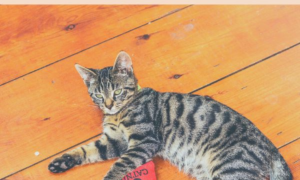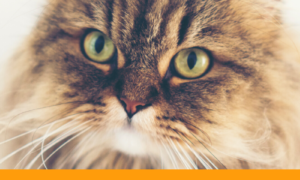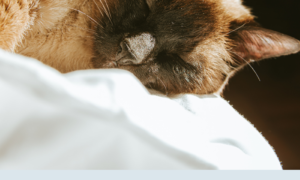Spring is finally here and many people are thinking about landscaping updates. Many plants and shrubs are beautiful to look at, but can be deadly for our pets if ingested.

This list of ten plants poisonous to pets was compiled by the Pet Poison Helpline (petpoisonhelpline.com). Check it out below:
- Crocus. There are two Crocus plants: one blooms in the spring and the other in the autumn. The spring plants are more common and if ingested can cause general gastrointestinal upset including vomiting and diarrhea. The Autumn Crocus is highly toxic and can cause severe vomiting, gastrointestinal bleeding, liver and kidney damage, and respiratory failure. If you’re not sure what plant it is, bring your pet to their veterinarian immediately for care. Signs may be seen immediately but can be delayed for days.
- Azaleas. This plant can have serious effects on pets. Eating even a few leaves can result in vomiting, diarrhea and excessive drooling; without immediate veterinary attention, the pet could fall into a coma and possibly die.
- Cyclamen. The roots of this plant are especially dangerous to pets. If ingested, cyclamen can cause severe vomiting and even death.
- Lilies. Peace, Peruvian, and Calla lilies contain oxalate crystals that cause minor signs, such as tissue irritation to the mouth, tongue, pharynx, and esophagus – this results in minor drooling. The more dangerous, potentially fatal lilies are true lilies, and these include Tiger, Day, Asiatic, Easter and Japanese Show lilies – all of which are highly toxic to cats! Even small ingestions (such as 2-3 petals or leaves) can result in severe kidney failure. If your cat is seen consuming any part of a lily, bring your cat (and the plant) immediately to a veterinarian for medical care.
- Oleander. This shrub is popular for its evergreen qualities and delicate flowers. However, the leaves and flowers are extremely toxic if ingested and can cause severe vomiting, slow the heart rate and possibly even cause death.
- Dieffenbachia. Popular in many homes and offices, dieffenbachia can cause intense oral irritation, drooling, nausea, vomiting and difficulty swallowing if ingested.
- Daffodils. Ingestion of the bulb, plant or flower can cause severe vomiting, diarrhea, abdominal pain, and even possible cardiac arrhythmias or respiratory depression. Crystals are found in the outer layer of the bulbs, similar to hyacinths, which cause severe tissue irritation and secondary drooling.
- Lily of the Valley. This plant contains cardiac glycosides which will cause symptoms similar to digitalis (foxglove) ingestion. These symptoms include vomiting, diarrhea, a drop in heart rate, severe cardiac arrhythmias, and possibly seizures.
- Sago Palm. Very popular in warmer climates, this household and outdoor plant can be very harmful to pets. If ingested, the leaves and seeds can cause vomiting, bloody stools, damage to the stomach lining, severe liver failure and, in some cases, death.
- Tulips. The toxic of these plants is very concentrated in the bulbs (versus the leaf or flower), so make sure your dog isn’t digging up the bulbs in the garden. When the plant parts or bulbs are chewed or ingested, it can result in tissue irritation to the mouth and esophagus. Typical signs include profuse drooling, vomiting, or even diarrhea, depending on the amount consumed. With large ingestions of the bulb, more severe symptoms such as an increase in heart rate and changes in respiration can be seen, and should be treated by a veterinarian.
This is a partial list of plants poisonous to pets. For the complete list, go to petpoisonhelpline.com. If you have any of these plants or shrubs in your yard, and believe your pet may have ingested them, go to veterinarian as soon as possible. Getting treatment quickly will greatly increase your pet’s chances of a full recovery.
Photo source: photo credit: My First Ladybug via photopin (license)





